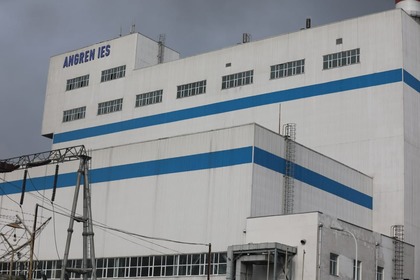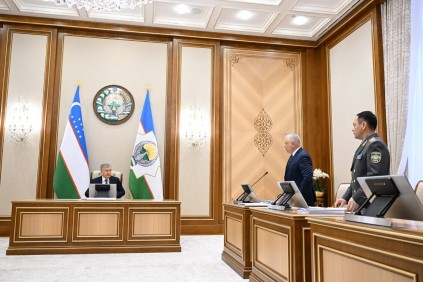Since January 2023, the Angren thermal power plant has been withdrawn from trust management, announced the Angren mayor’s office. The information was also confirmed by the Ministry of Energy.
According to the Ministry of Energy, the Angren TPP was returned to the Thermal Power Plants company. At the same time, Yangi-Angren TPP remains in trust management for the time being.
The Angren city prosecutor, Ulugbek Khabilzhanov said that the reason for the termination of the trust management agreement was the untimely ptoviding of funds for preparations for the autumn-winter season.
“The company, owned by a Kazakh firm, completely stopped monitoring thermal power plants. The error has been observed twice. 30 billion soums for preparations for the autumn-winter period were allocated belatedly. Together with the mayor, we have been making claims on this issue since the summer. This was reported to the Prime Minister, and on January 2, both TPPs were taken out of external control and transferred to the Ministry of Energy. A new leader has also been appointed. The money was allocated after [the thermal power plant] was completely handed over to us, now a working group has been involved in troubleshooting,” Ulugbek Khabiljonov said.
According to him, currently there are 3 boilers at Angren TPP, of which only one is working.
Angren TPP is part of the Uzbek unified energy grid. It is intended for electricity and heat supply to Angren and other districts of the Tashkent province. The installed capacity of the power plant is 393 MW. The plant operates on brown coal from the Angren deposit. The TPP equipment includes turbine units with a capacity of 53 MW, 54 MW, 68 MW, as well as a power unit with a capacity of 150 MW.
In June 2020, Gazeta.uz reported that Angren TPP, together with Yangi Angren TPP, as well as the coal and kaolin mining enterprise Uzbekkumir , were transferred to the management of Central Asia Energy LLC, established by the Kazakh company Mining work".
The planned transfer of the Angren and Yangi-Angren TPPs to the Kazakh company Mining Works was reported back in June 2019 by the chairman of Thermal Power Plants Ruslan Mubarakshin. He noted that the plants would go into trust management for three years. According to him, it was planned to reduce the use of natural gas as much as possible and increase the share of coal combustion.
At the end of 2021, Angren TPP ranked sixth in terms of loss among companies with state shares - 87.6 billion soums.
Reactions
Financier Otabek Bakirov drew attention to the fact that Angren TPP suffered losses worth of 111.8 billion soums in the first nine months of 2022. Since the transfer of the plant to trust management, the total amount of losses has reached 577 billion soums. The value of net assets decreased by 117 billion soums. At the same time, in 2017, 2018, 2019, the TPP was profitable. Yangi-Angren TPP completed nine months of 2022 with a loss of 169 billion soums. Since the transfer of the plant to trust management, the accumulated losses have exceeded 875 billion soums. The value of net assets is minus 440 billion soums.
“That is, company has spent its capital. For three full or incomplete years, 1.5 trillion soums of damage have been accumulated ... Despite such catastrophic consequences, the state paid commissions to these daring men for trust management. Information about paid commissions has never been disclosed,” Otabek Bakirov said.
Both thermal power plants are considered the largest importers of coal in Uzbekistan, but there is no public information about where and at what price coal is imported.
As reported, in 11 months of 2022, 2.39 million tons of coal were delivered to the country worth $105.8 million. The average import price also amounted to $44.1 (+15.3% compared to 2021).
Imports from Kazakhstan reached 1.296 million tons for $51.1 million ($39.4 per ton). Kyrgyzstan increased supplies to 1.03 million tons for $32.3 million ($31.2 per ton), and Russia - up to 62.53 thousand tons for $21.78 million ($347.8 per ton).
Russian coal costs Uzbekistan 8.8 times more than Kazakh and 11.1 times more than Kyrgyz coal.














